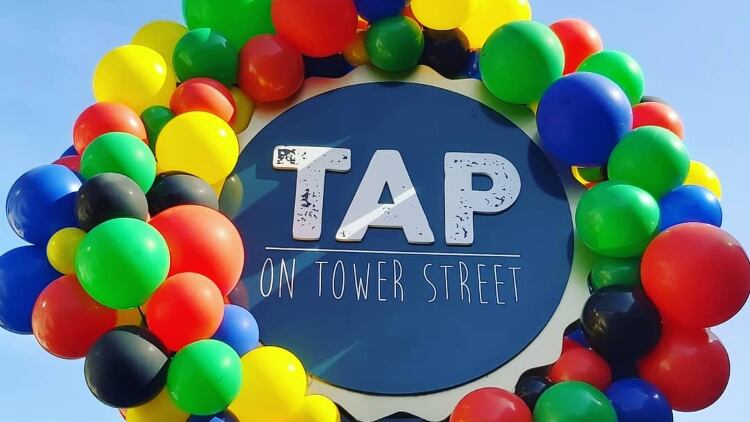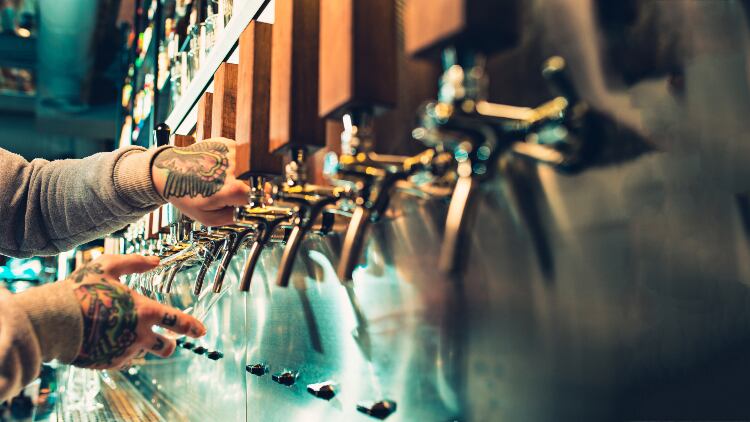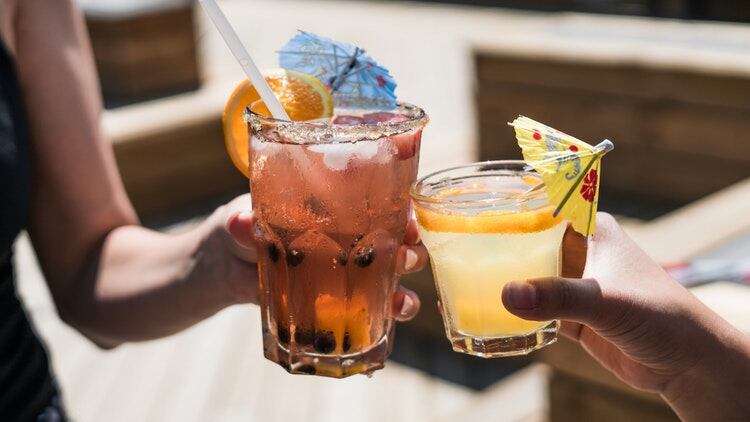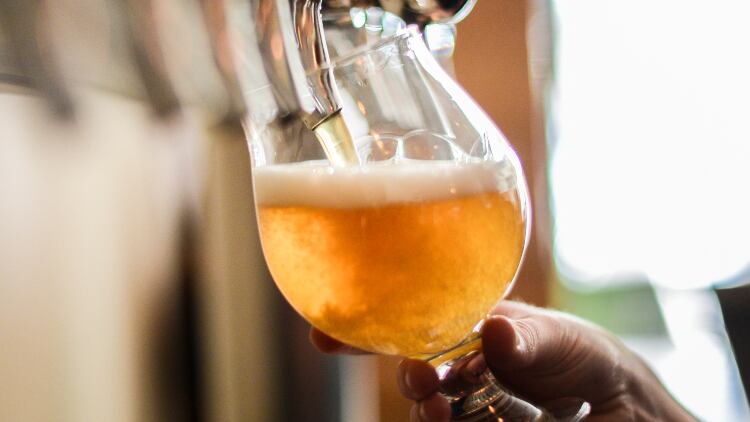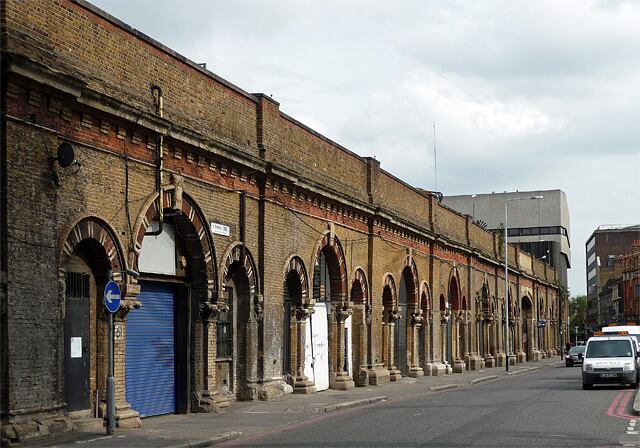Stand for something
According to Sam Cornwall-Jones of the Drawing Board in Leamington Spa, Warwickshire – winner of the Best for Beer category at the 2019 Great British Pub Awards (GBPA) – having an entrenched ethos and set of values helps ensure relationships run smoothly.
Trading with identity gives brewers an idea of the pours that are likely to pique a publican’s interest and, ultimately, sell. Cornwall-Jones’s freehouse, which creates bespoke brews with local producers such as Old Pie Factory and Church Farm, champions contemporary craft beer “rather than the old man and a pint style”.
“When we first opened, we stocked beer such as Timothy Taylor’s Landlord and Black Sheep – the heavy hitters of the cask world – but, in order for us to be interesting, we took the big boys off because they were c***kblocking everything else; customers would just automatically order Doom Bar, for example.
“We try to use small independents who are representative of us ethically, in terms of branding, quality and – massively – the price. These are all things we throw into a mix – are we attracting the right audience, are they still right for us, and is it being sold anywhere else in the town?
“We like the little independents that perhaps haven’t quite made it or are hard to get hold of – we’ll drive to Cheltenham, for example, to get some Deya beer that we can’t get anywhere else and we don’t have to beg them to sell it to us.”
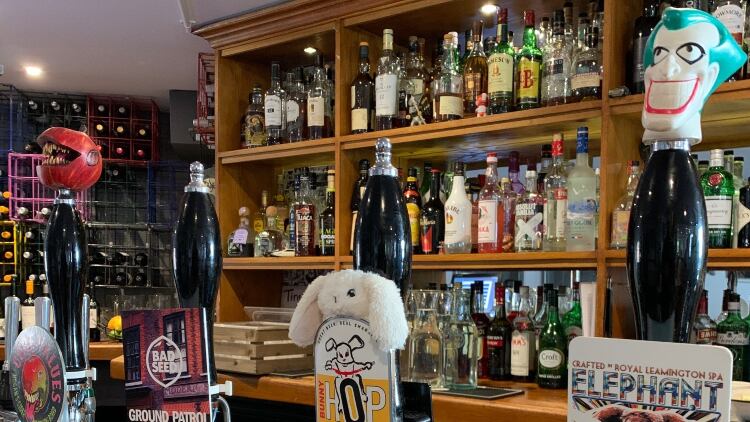
Be active on social media
A finalist in the GBPA’s best freehouse category, Jemima Withey’s Turks Head in Woodbridge, Suffolk, works with six or seven local brewers to provide guest ales on top of main pours Adnams Ghost Ship; local brewer Earl Soham’s Victoria; and Captain Barlow, a bespoke brew from Greene King.
“It was Greene King who came to us and said, ‘would you be interested in having your own beer? We’ll help you develop that’. I’m sure that it helps in all sorts of ways that we are very visible.
“Social media is completely price less as to promoting what’s going on – whether it’s gin or talking about a guest ale or new beers that we’re trying.
“I will always tag a brewer in images that involve them – a lot of them don’t use Twitter but they’re generally all on Instagram now – I’m sure that helps oil the wheels.”
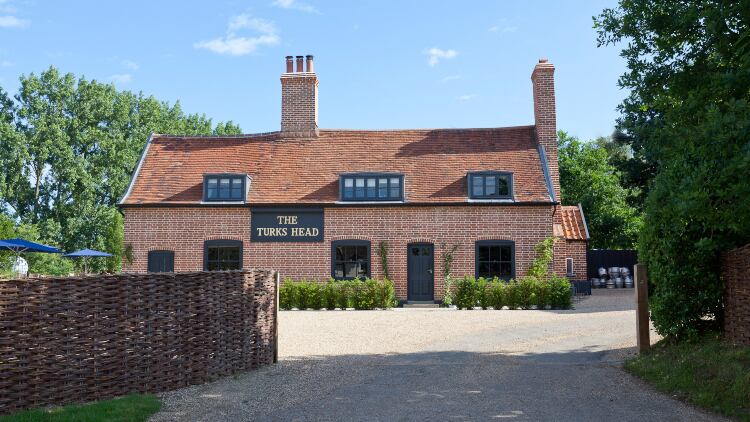
Can staff handle the product?
Publican’s tool kit
Slack – “The whole business runs on Slack. It’s a great way to communicate with anyone in the business, especially when organising events, sharing photos and content,” says the Pembury Tavern’s general manager Pete Walker.
Untappd – The social drinking app allows Kayleigh Thompson of Ei Group pub, the Tap on Tower Street, to scout popular local beers while letting brewers gauge how their drinks are selling.
Microsoft Excel – According to Jemima Withey of the Turks Head, the humble Excel spreadsheet is vital in her staff managing the GBPA-finalist freehouse’s cellar.
Rekki – Rekki is a free app that lets you purchase from and chat with your suppliers, report issues and keep track of your order history all in one place.
Any alarm app – “If we want a particular product that is hard to get hold of we will set an alarm on our phones so we’re ready to go online. It’s first come first served with various people.” According to Sam Cornwall-Jones of the Drawing Board.
Phone – “The danger I’d have thought with using too much internet is that you’re not talking direct to people anymore, which means it’s harder to negotiate. If you’re trying to get a good price, if you can speak to people you’ve got a fighting chance,” says Cornwall-Jones.
Withey adds that ensuring pub staff are trained to ensure beer reaches the customer’s glass as the brewer intended is essential in cementing a good relationship with producers.
“Greene King has supported us by providing cellar management courses for free,” she explains. “I currently have about six members of staff that have had training with them and Adnams has taken my team for tours of their brewery and gin distillery.
“We’ve had the Guinness rep come in and tell us we have a perfect pour, Cask Marque come and do their assessment once a year. Those kinds of working relationships are really useful.
“From a commercial point of view, if my chaps aren’t pouring beer well I waste money in the drip tray. If my cellar isn’t managed well, people don’t enjoy my beer or I lose my beer.
“I would like to think we have very strong cellar management, including good ordering so that we haven’t got things going out of date.”

Take pride in your pints
East Anglia-based brewer Woodforde’s distributes its beer to around 1,000 pubs across Norfolk, Suffolk, Cambridgeshire, Essex and the outskirts of London.
Initiatives such as its 400-site 2019 Ale Trail and recently established Premier Pub Partners programme to bring match-day events to five city centre pubs in Norwich because part of its sponsorship of Norwich City Football Club requires careful selection of partner pubs.
“You have to provide things like glassware, point of sale and pump clips just to get your position on the bar,” Woodforde’s commercial and marketing director James Armitage says. “That’s quite an investment for a small brewer.”
Armitage adds that finding a publican who mirrors a brewer’s commitment to the perfect pour is paramount.
“Commercially there’s a commitment to stock products on a regular basis but then there’s also serving a quality pint as well,” he says. “Ensuring that the pint of Woodforde’s that they serve is the very best pint, in the right glass and at the right temperature.”
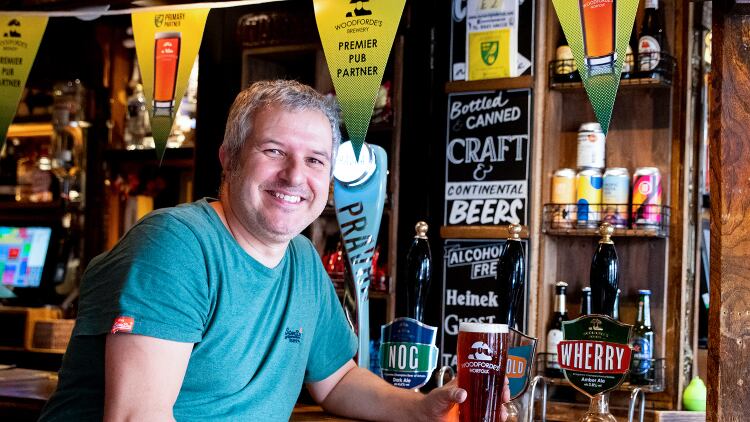
It can pay to specialise
Having recently selected five sports pubs that stock Woodforde’s beers to amplify its partnership with the city’s football club through exclusive events on Canaries’ match days, Armitage adds that an operational niche can help a pub’s partnership with a brewer.
“We’ve been quite selective with key sporting pubs in Norwich or pubs on the circuit,” he explains. “There are a number of pubs that are definite pre or post-match, go-to sporting venues.
“The one we worked with on 5 October was open from 8am with the rugby on then they ran the raffle for the free tickets under the Premier Pub Partners. They’re a really busy, well-known venue in the city, which is beneficial for that pub but it’s also good for us as it’s good exposure for us.”
Be open to suggestions
“It’s about entering into a professional, commercial relationship, so it’s not just transactional,” Armitage adds. “So a publican is open to suggestions, ideas and support. We’re certainly not telling them how to run their pub but certainly we can leverage what we’re doing to help them.”
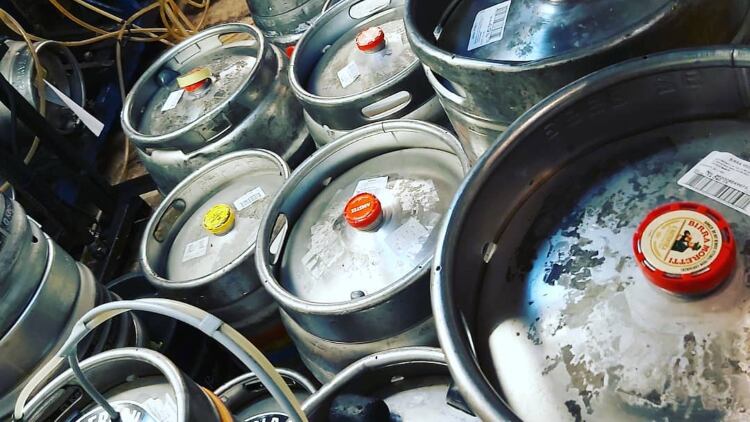
Knowledge and enthusiasm
According to Pete Walker, general manager of GBPA 2019 Best for Beer finalist the Pembury Tavern in Hackney, east London, a love of the industry and keeping a finger on the beer industry’s pulse have helped The Five Points Brewery owned pub establish itself as a “perfect place” for the brewer to showcase its products.
“The staff in the pub are all given training by Greg Hobbs, Five Points’ head brewer, to ensure they’re knowledgeable and confident in chatting about the beers, the recipes and the history of the brewery to customers at the bar,” he explains.
“We can also use the relationships gained over the six years that Five Points has been trading to hold events with other breweries and industry leaders and, as a result, we’ve hosted some really amazing beers on the taps. We keep our ear to the ground and make sure we’re following drinking trends. We try to keep a sour and a low-ABV beer on the bar at all times because we found there is a massive demand for them.
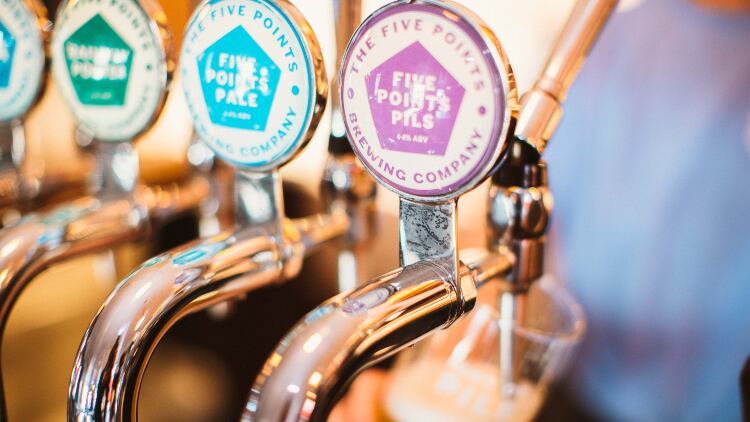
“We like to work with up-and-coming breweries, as well as those already established to make sure we have all bases covered, and that we’re supporting newer talent in the beer industry.”
According to Kayleigh Thompson of 2019 GBPA winning Ei Group Pub of the Year – the Tap on Tower Street in Harrogate, North Yorkshire – creating events and a social media buzz around brewers’ latest pours can help grease wheels and ultimately shift product.
“I permanently have a Rooster’s and a Timothy Taylor’s on.
“Because they’re local, it’s worth me ordering those in because the customers love it, the quality is always good and, if I’m short of something, I can ring the brewery and they’re great with glassware, bar mats, bar runners and things like that. When they’ve got new beers on, they’re really good at giving me a call.
“It’s about getting the best out of their products.
“What they produce is great anyway so that helps, but doing tap takeovers, meet-the-brewer nights and food pairings with pop-up food events really helps too.
“Even if it’s the same products or beers that we have to work with, it’s about showcasing them in a different way.”
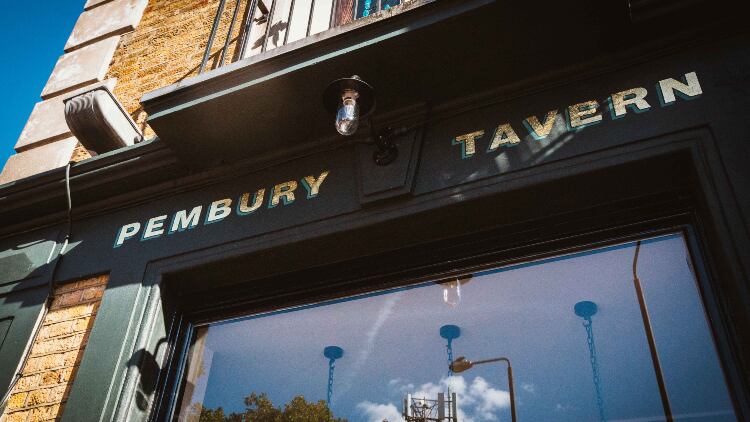
Lots of local options
Asked whether she has much scope to work with local brewers or diversify her beer offer despite being tied, Thompson explains that, while it can be tricky, she’s managed to find a niche using the range of products offered by brewers working with Ei.
“It’s difficult but my BDM is really good with things like that,” she says.
“I just pop him a message over and, as long as they’ve got a special option that I can buy into, the brewery can send me different things within the ABV and price range.
“It’s hard sometimes because you’d like to try other brands and you just can’t – that can be frustrating.
“But we’ve got a lot of the locals available: the York Brewery, Ilkley, Bridgehouse, Bradfield – there are so many on within Yorkshire, which is a great selling point for us, people love a good Yorkshire beer.”
